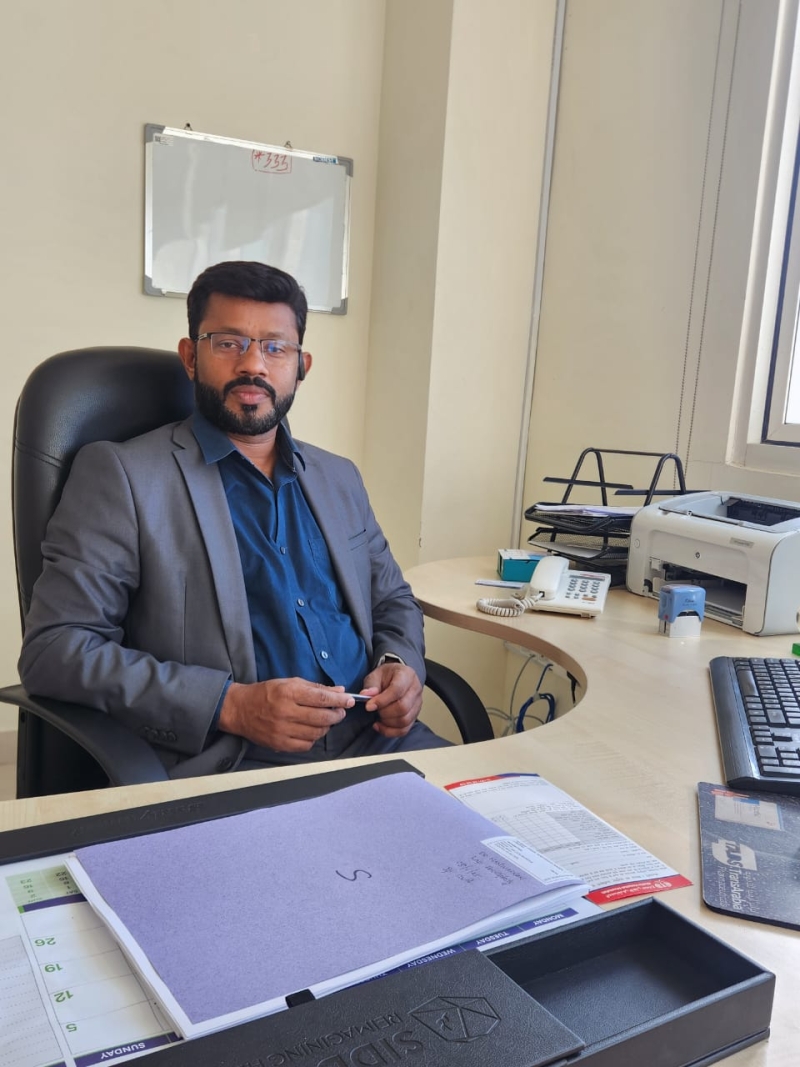
Dr Manivarnan has more than 20 years of overall experience.
•12 years of exclusive experience in gastrointestinal laparoscopic and endoscopic surgery.
• Laparoscopic gastrointestinal and hepatobiliary surgery including GI-Onco Surgery.
•Dr Manivarnan is also an expert in performing diagnostic and therapeutic upper and lower endoscopic procedures and ERCP.
•Besides the surgical experience, Dr Manivarnan gained experience as an academician in bedside and classroom teaching for MBBS and postgraduate students.
•He is well known for his research during Post Graduate and Super-speciality education-
> Association of H. pylori in peptic ulcer perforation.
> Risk factors for complications following whipple operation.
Qualification
MBBS,
MS,
DNB,
MRCS(Royal College of Surgeon s Edinburgh)
Specialist and Chief Gastro Surgeon
(Ahalia hospital- Musaffah abudhabi)
His Expertise
•laparoscopic abdominal surgeries like whipple surgery, cholecystectomy, appendectomy, and hernia repairs.
•hepatic and biliary surgeries, major liver resections, gastrectomy, APR, LAR, splenectomy.
•colorectal surgery
•bariatric surgeries.
•expert in performing basic and advanced perineal procedures,hemorrhoidectomy( THD , Laser, Staplers).
•Expert in performing diagnostic and therapeutic upper GI endoscopy and colonoscopy.

Gastrointestinal surgery encompasses a wide range of procedures that treat benign (noncancerous) and malignant (cancer) conditions that affect the body's digestive system.
The GI tract is another name for your body's digestive tract. It consists of several tube-like organs joined together—starting at the esophagus in the mouth and ending at your anus. Each piece of the GI tract plays a role in how your body digests (breaks down) food and nutrients.
Organs that make up the GI tract include:
Esophagus
Stomach
Small intestine (small bowel)
Large intestine (colon)
Rectum
Anus
The digestive system also includes organs that aren't part of the GI tract. These organs include:
Gallbladder
Liver
Pancreas
Surgeons with different types (and levels) of training can perform GI surgeries. Our GI surgery team includes board-certified general surgeons trained in treating a wide variety of problems. Many of our surgeons have received fellowship training, an intensive process that provides an extra layer of expertise.
Both gastroenterologists and GI surgeons diagnose and treat conditions affecting the digestive system. Gastroenterologists are trained in internal medicine and receive additional training in problems of the digestive system. They treat GI conditions medically (such as with medicines) and perform nonsurgical procedures, such as colonoscopies.
GI surgeons perform surgeries on the abdomen (belly) area, including on organs of the digestive tract. Our GI surgeons are leaders in minimally invasive GI surgery techniques. Many members of our team have completed fellowship training — an in-depth study of a specific area, such as hepatobiliary (liver, pancreas and gallbladder) surgery.
Upset stomach, nausea (feeling queasy) and diarrhea (loose stools) are all common GI symptoms most people experience at some point in life.
Often, these symptoms of the GI tract can be resolved or managed with medical treatments and don't require surgery. You should always see a doctor if you have GI symptoms that concern you, won't go away or significantly affect your quality of life.